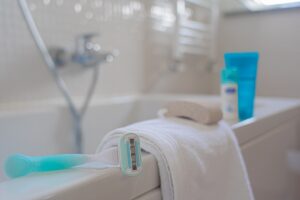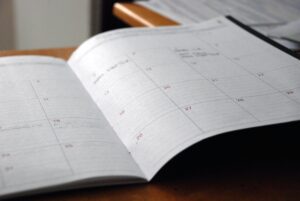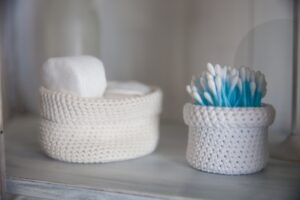
Personal Hygiene Care for the Elderly at Home.
Image c/o Pexels
Maintaining proper personal hygiene becomes quite difficult for most individuals as they age. Our elderly loved ones could experience difficulties getting in and out of the bath, standing in the shower or using the toilet. A decline in their immune systems could result in less physical strength limiting their ability to practice basic personal care. Poor hygiene could cause severe infections, diseases and skin complications.
In some instances, seniors might be against receiving help with personal hygiene care which could make it difficult for the caregiver. Others tend to forget simple hygiene care like taking a bath or brushing their teeth. Such circumstances call for a different approach and a unique skill set. Caregivers should be adequately prepared and remain patient in the process. This article shares tips for personal hygiene care for the elderly at home.

Establishing a Routine Image c/o Unsplash
-
Establishing a Routine
Establishing a routine, minimizes their chances of neglecting personal hygiene care. The best way to create a routine is through their preferences on the times they are comfortable taking a bath, the manner in which they would like to take the bath and using specific items that they prefer. A routine makes them comfortable and it also helps build a better relationship with the caregiver.
-
Respect their Privacy
The transition to having someone help them take a shower can be a degrading experience for some seniors. As a caregiver, you need to have an open and honest conversation on what they are comfortable with while respecting their modesty. Allow them to cover body parts or let them help you wash their private parts. Such actions help them feel in control of their personal hygiene. Creating a relaxing atmosphere also makes them comfortable as it avoids any feelings of embarrassment.
-
Prioritize Safety
Implementing safety measures prevents falls and slips especially in the bathroom. Make adjustments such as placing non-slip mats on the bathroom floor, adding a raised toilet set, installing grab bars for support and transfer benches or shower chairs to help them while taking a shower. Personal hygiene care areas should be safe and easy to access at all times.
Related Article: Bathroom Safety Tips to Prevent Falls

Stock Up on Hygiene Products.
Image c/o Unsplash
-
Stock Up on Hygiene Products
Discussing with an elderly loved one on the products that they prefer for hygiene care will ensure that you fully stock these products. You may also help them pick out products that are safe and skin friendly so as to prevent any reactions. Encourage the use of products with fewer chemical combinations as older adults might experience severe side effects from using these products.
-
Call in Professionals
Caregiving can be difficult for family members as they might not feel comfortable providing personal hygiene care to an elderly loved one. If faced with such a situation, the option for professionally trained caregivers guarantees that your loved one will be taken care of with the dignity and compassion they deserve. Professional caregivers at home rely on care techniques that maintain the independence of your elderly loved one.
Related Article: 24 Hour Home Care vs. Live-in Care
-
Regularly Change Linens, Bedding and Clothing
Consider changing linens, bedding and clothing every 48 hours especially for seniors with mobility issues. Stock up on more towels and bedsheets in case of any unexpected incidents that could require multiple changes in a single day. In addition to this, investing in clothes that are easy for them to wear or remove not only improves their comfort but requires very little effort especially for seniors with mobility issues.
Are you looking for a reliable and experienced caregiver to help with caring for an elderly loved one? Get in touch with us today!!
Like and follow us on Facebook, Instagram & Twitter.


